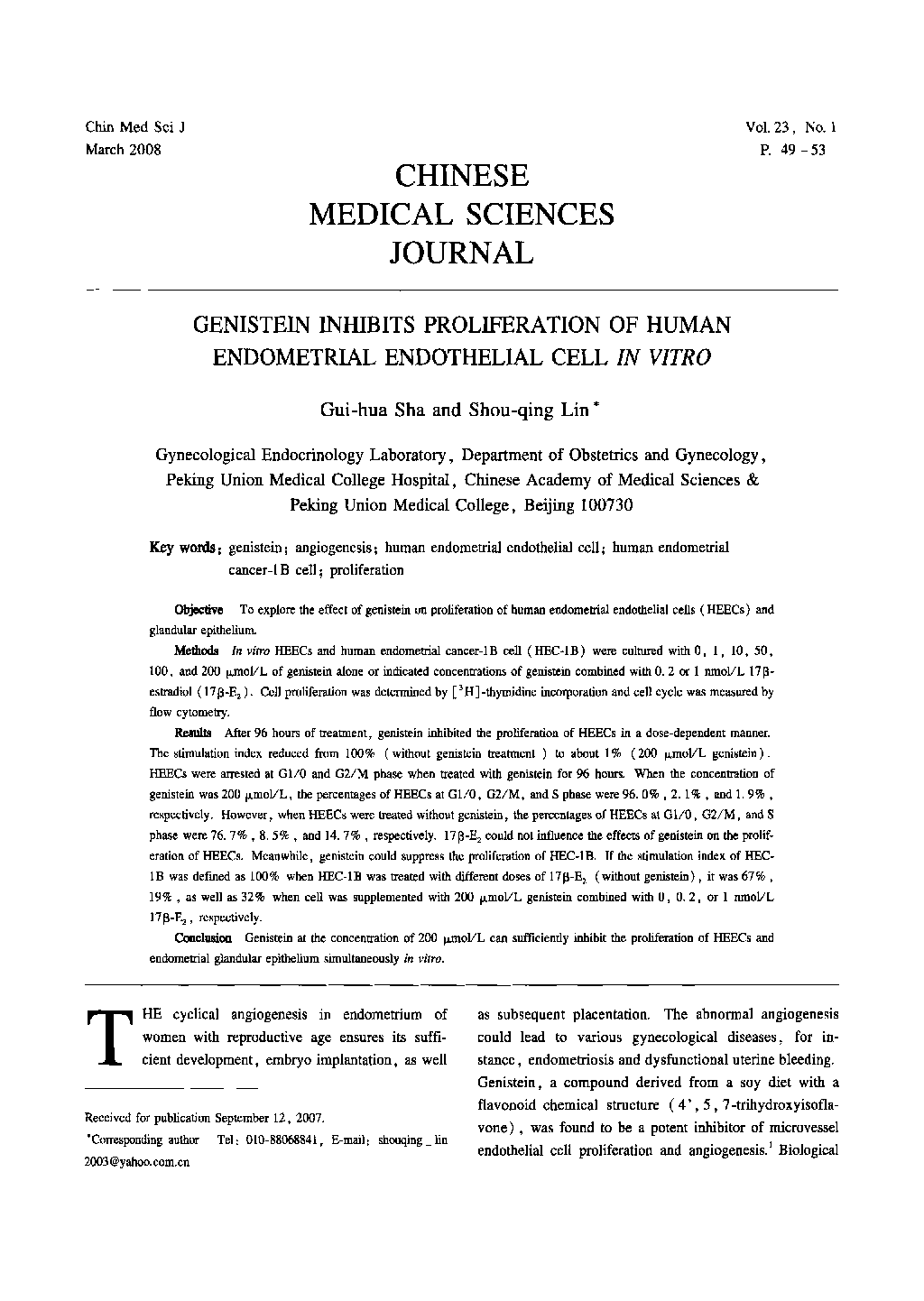| Article ID | Journal | Published Year | Pages | File Type |
|---|---|---|---|---|
| 3459867 | Chinese Medical Sciences Journal | 2008 | 5 Pages |
ObjectiveTo explore the effect of genistein on proliferation of human endometrial endothelial cells (HEECs) and glandular epithelium.MethodsIn vitro HEECs and human endometrial cancer-1B cell (HEC-1B) were cultured with 0, 1, 10, 50, 100, and 200 μmol/L of genistein alone or indicated concentrations of genistein combined with 0.2 or 1 nmol/L 17β-estradiol (17β-E2). Cell proliferation was determined by [3H]-thymidine incorporation and cell cycle was measured by flow cytometry.ResultsAfter 96 hours of treatment, genistein inhibited the proliferation of HEECs in a dose-dependent manner. The stimulation index reduced from 100% (without genistein treatment) to about 1% (200 μmol/L genistein). HEECs were arrested at G1/0 and G2/M phase when treated with genistein for 96 hours. When the concentration of genistein was 200 μmol/L, the percentages of HEECs at G1/0, G2/M, and S phase were 96.0%, 2.1%, and 1.9%, respectively. However, when HEECs were treated without genistein, the percentages of HEECs at G1/0, G2/M, and S phase were 76.7%, 8.5%, and 14.7%, respectively. 17β-E2 could not influence the effects of genistein on the proliferation of HEECs. Meanwhile, genistein could suppress the proliferation of HEC-1B. If the stimulation index of HEC-1B was defined as 100% when HEC-1B was treated with different doses of 17β-E2 (without genistein), it was 67%, 19%, as well as 32% when cell was supplemented with 200 μmol/L genistein combined with 0, 0.2, or 1 nmol/L 17β-E2, respectively.ConclusionGenistein at the concentration of 200 μmol/L can sufficiently inhibit the proliferation of HEECs and endometrial glandular epithelium simultaneously in vitro.
